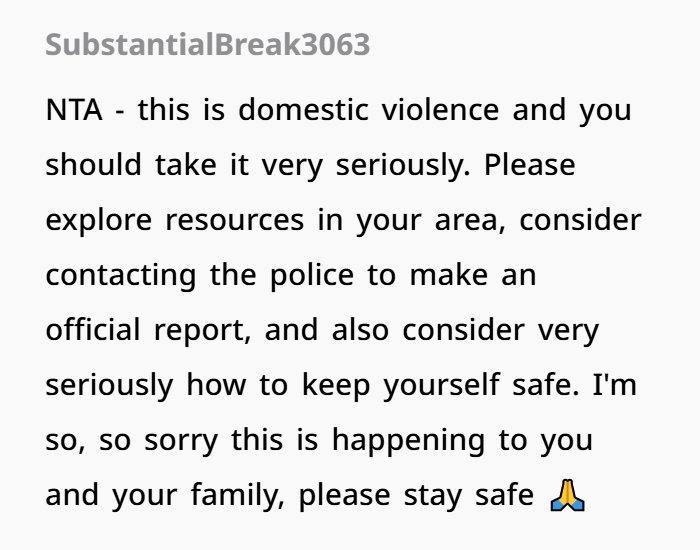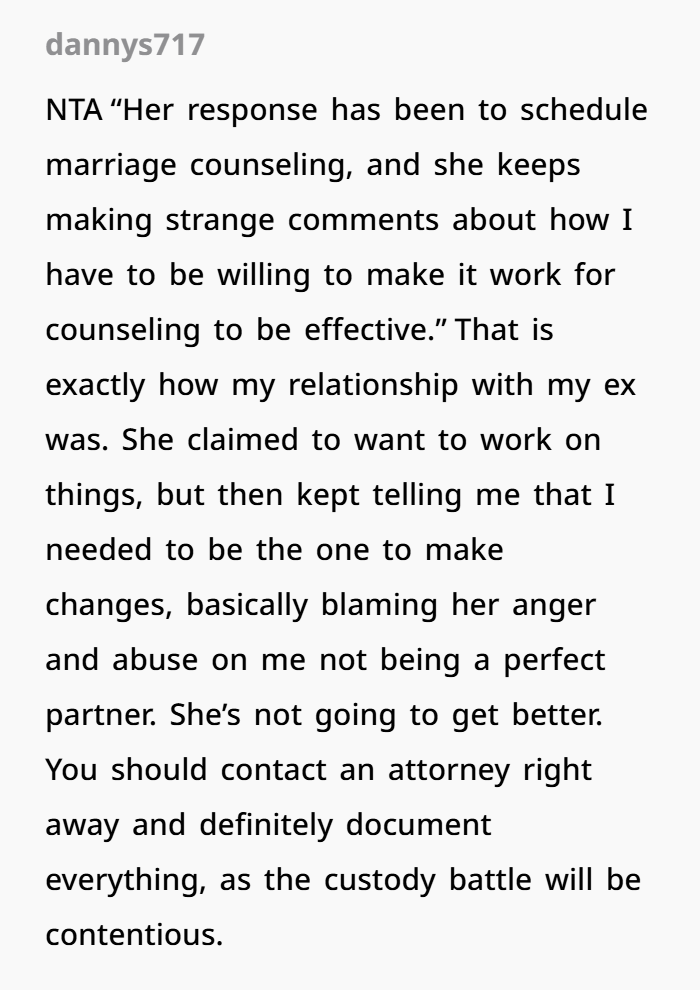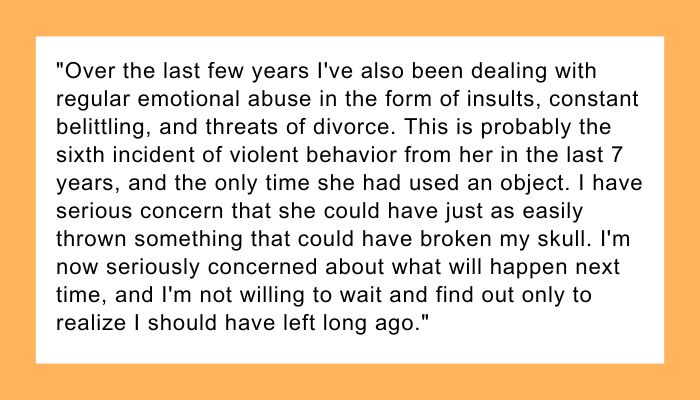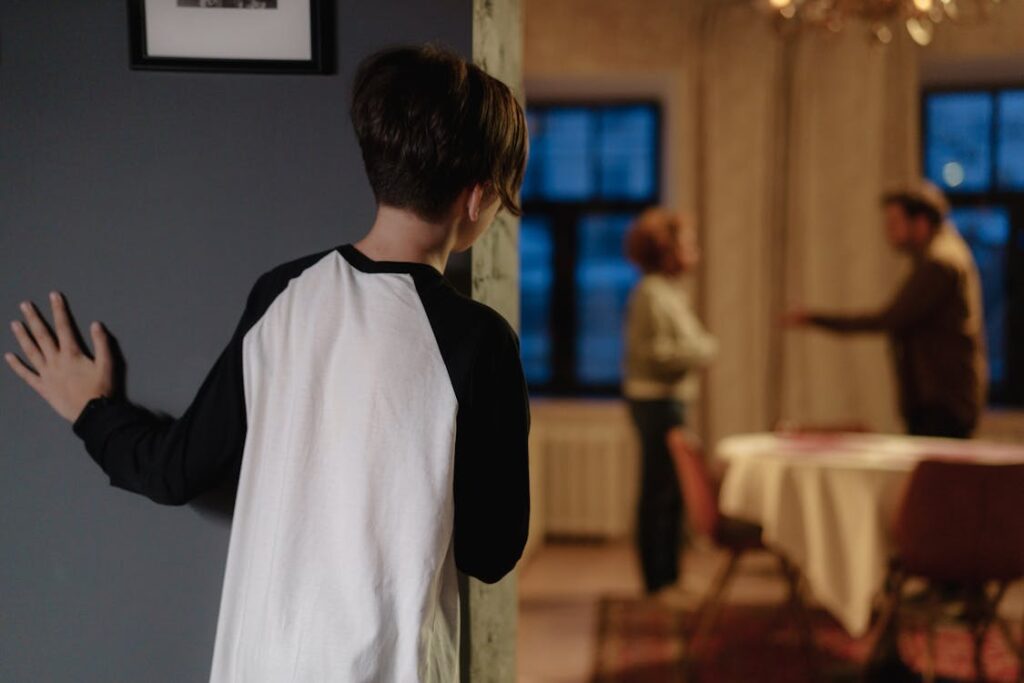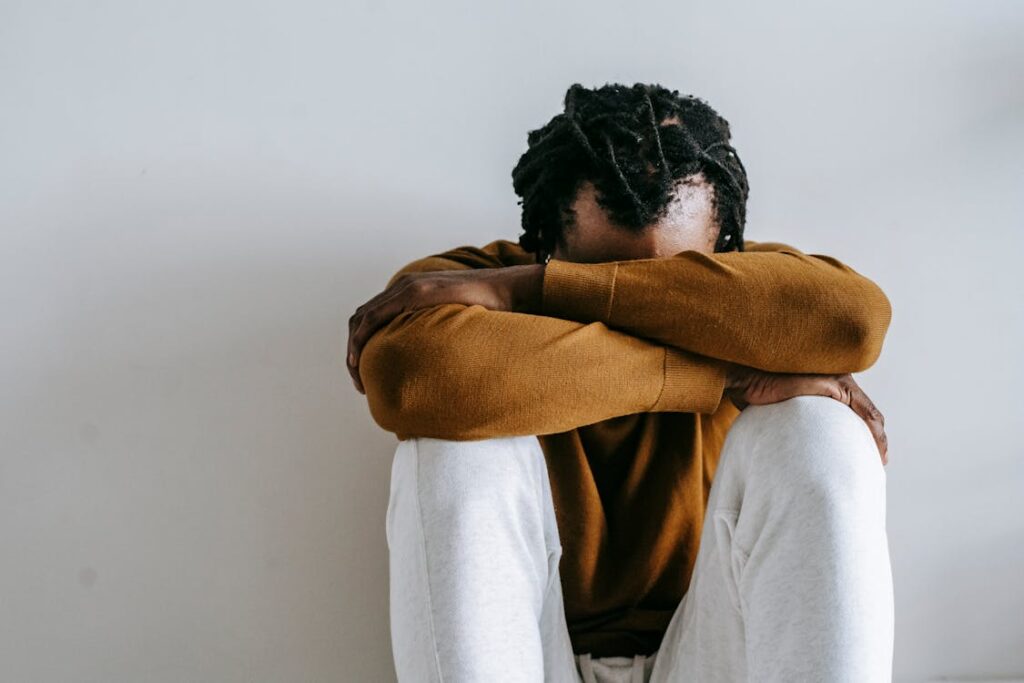Man Reconsiders Entire Marriage After Week-Long Concussion Shakes Him Awake
No one deserves to suffer from emotional or physical pain, especially from someone they love. Sadly, domestic violence and emotional abuse in close relationships are more common than many people think.
Recently, a user shared his experience in the popular online community ‘AITAH’ (Am I The A**hole?). He opened up about being mistreated by his wife – someone he deeply cared about. Over time, her behavior became more aggressive. When she was angry, she lost control and acted in hurtful ways. She used emotional manipulation to control him and eventually even turned violent.
This was the final breaking point for him.
Many people online could relate to his story and offered support. His post sheds light on how painful and damaging a toxic relationship can be – and why mental health awareness and relationship counseling are so important.
Scroll down to read his full story and learn why seeking help is never something to be ashamed of.
Read for more info Reddit
No couple is immune to arguments, but they should never resort to violence to solve them
This wife’s way of solving issues with her husband caused him a concussion
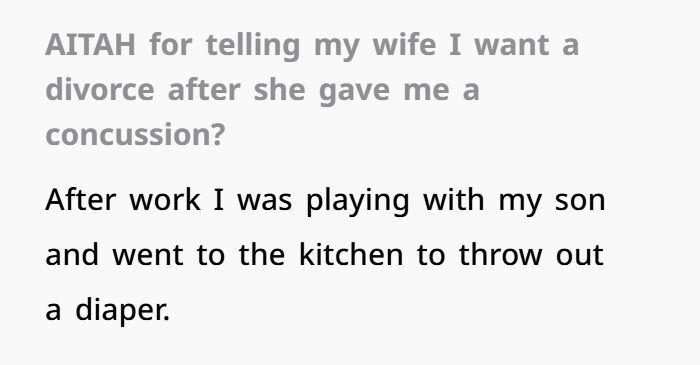
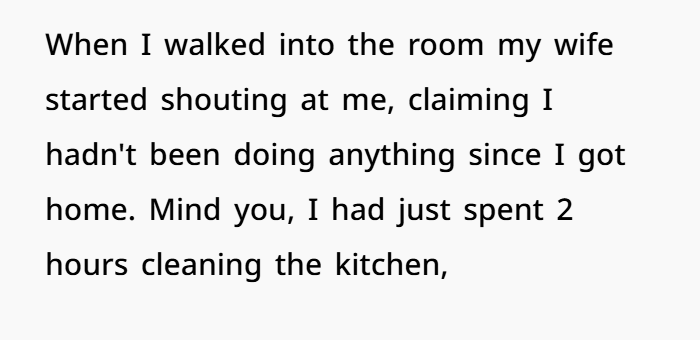
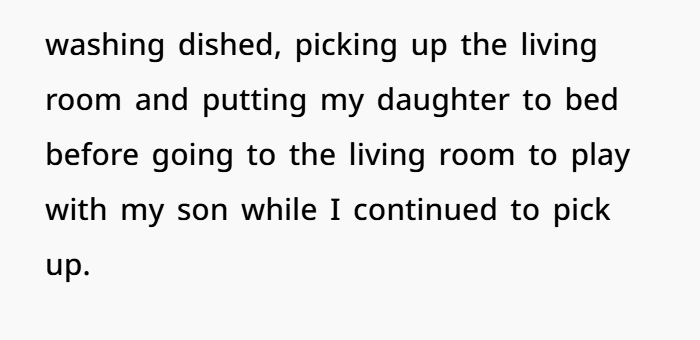
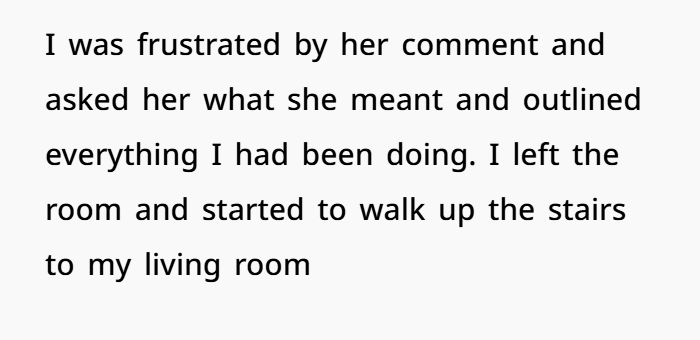
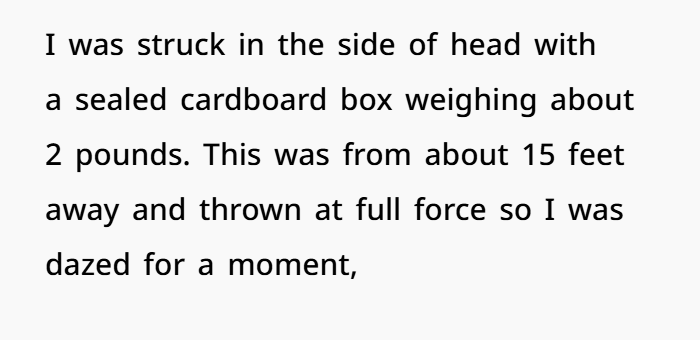
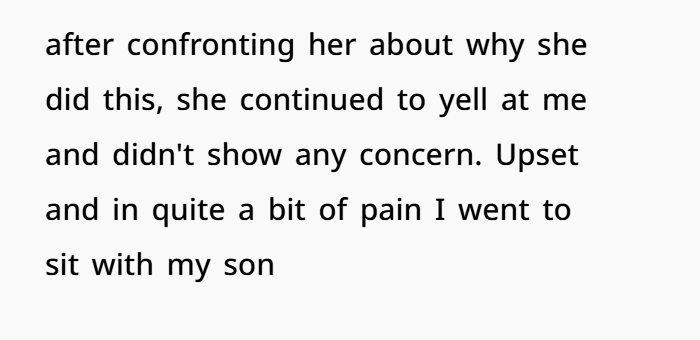
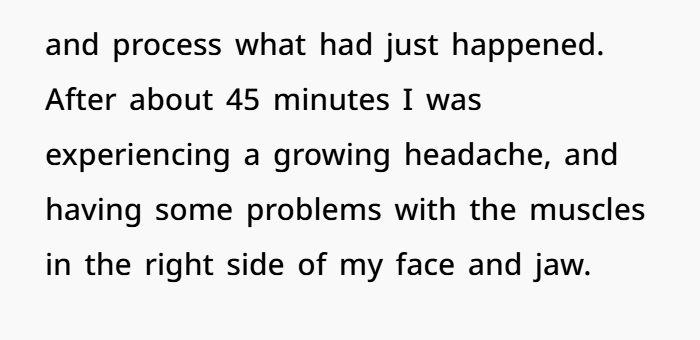
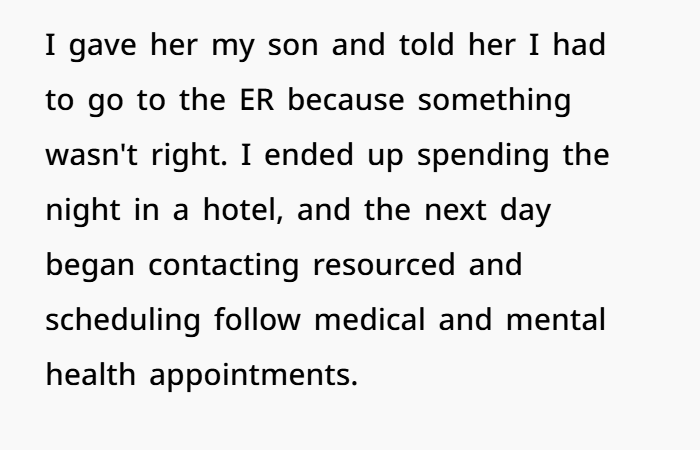
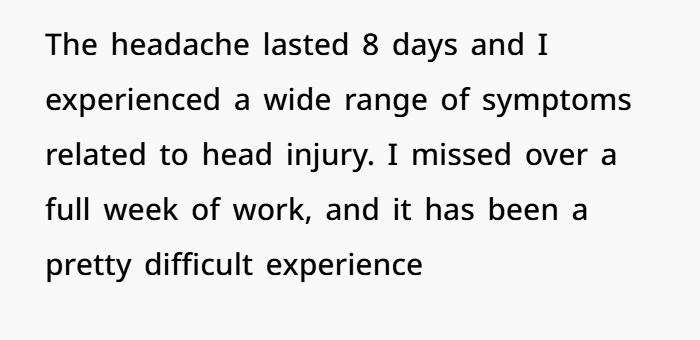
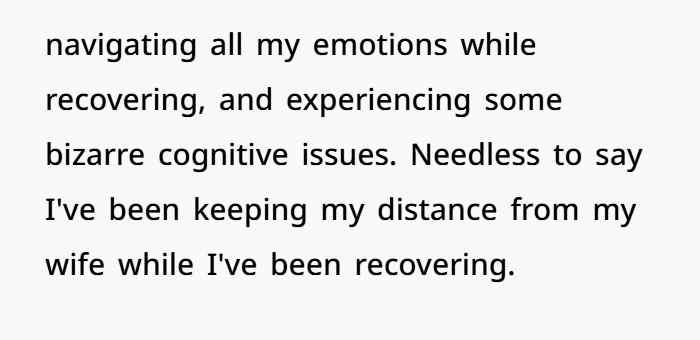
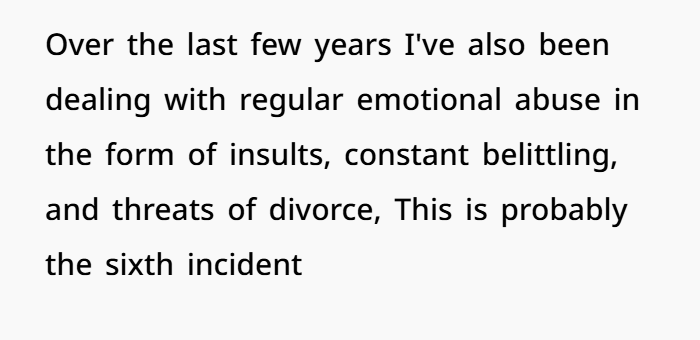
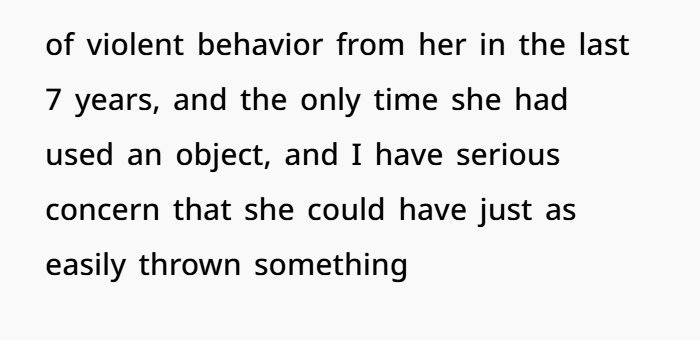
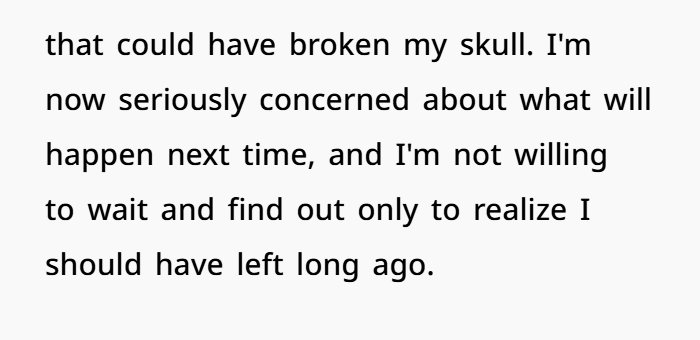
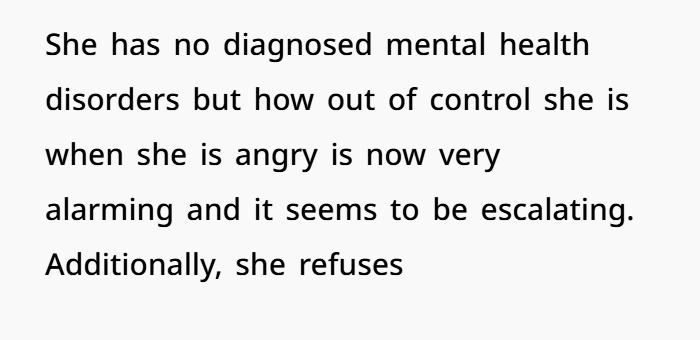
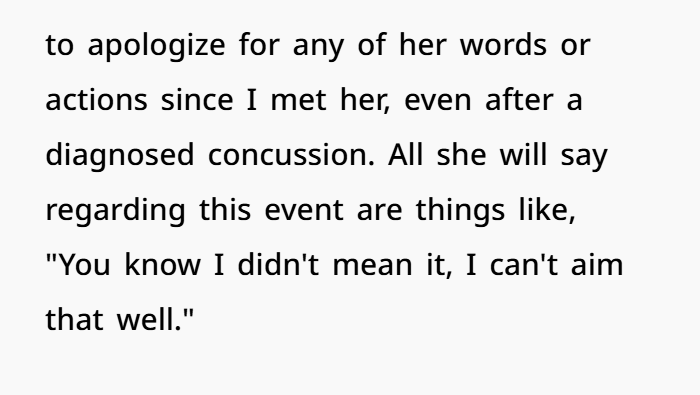
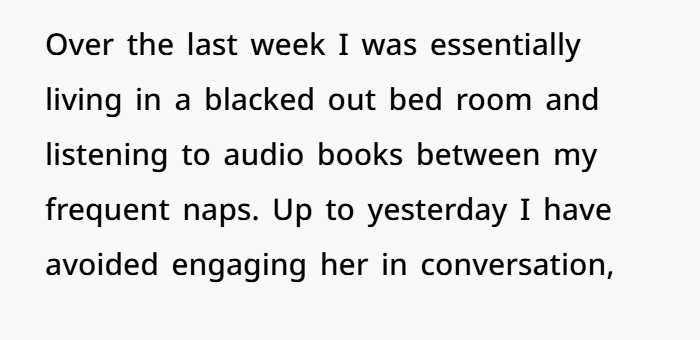
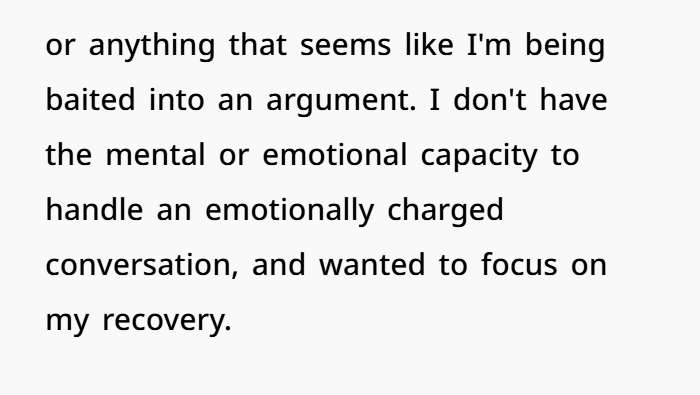
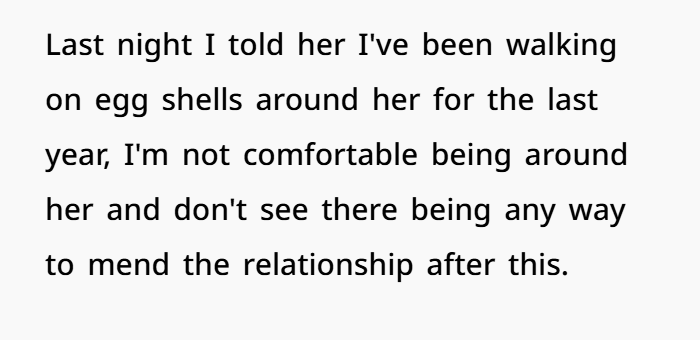
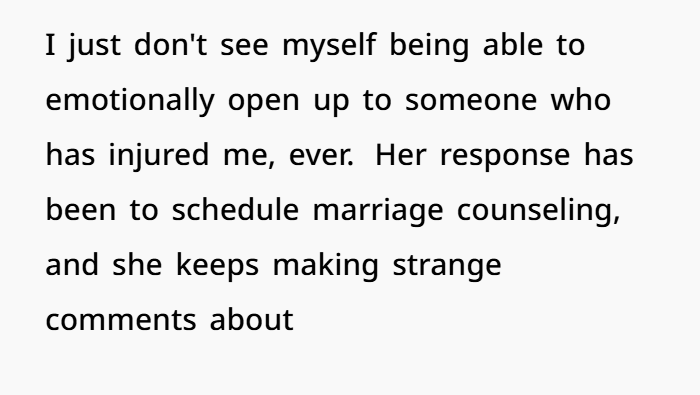
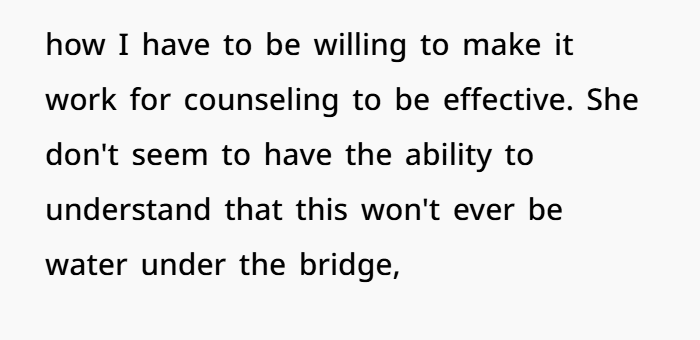
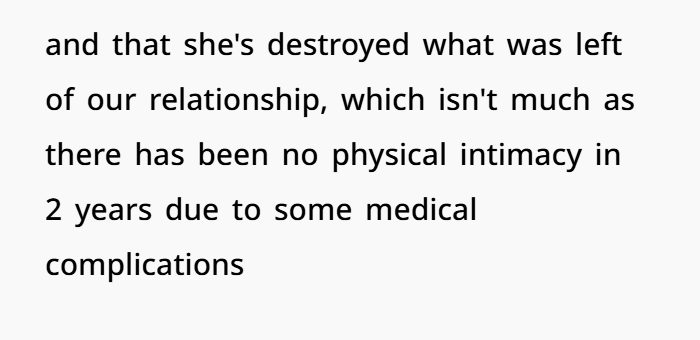
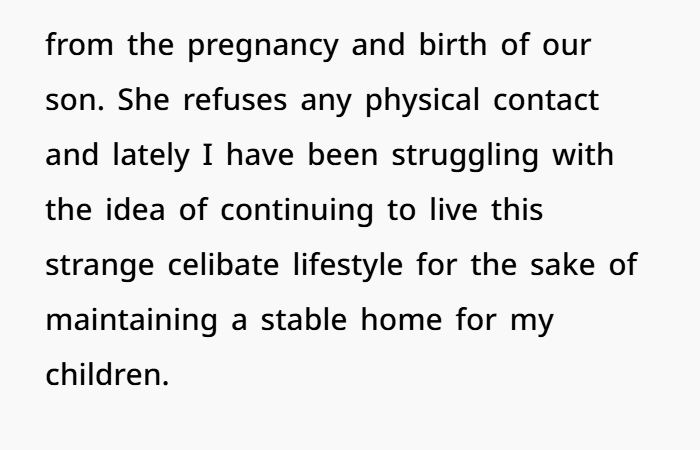
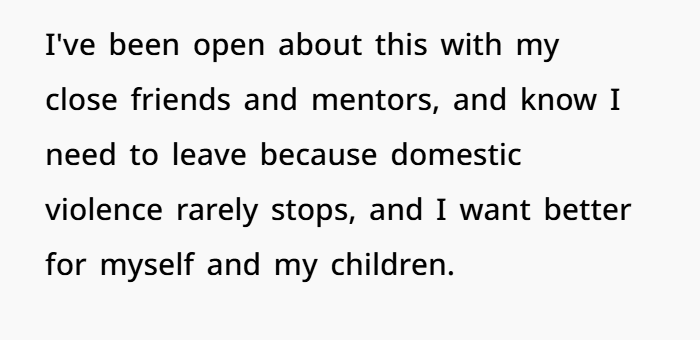
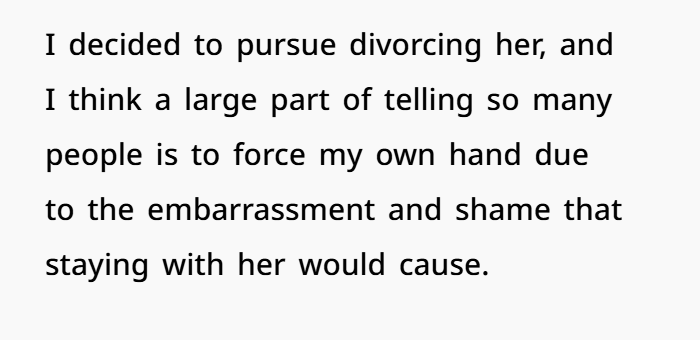
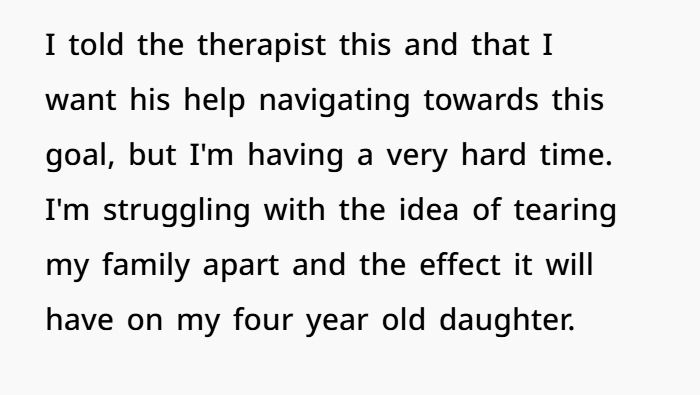
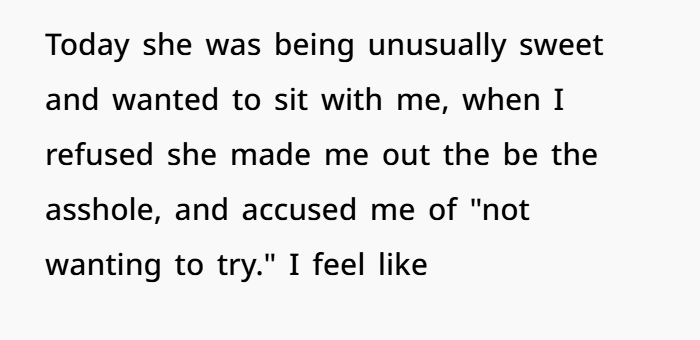
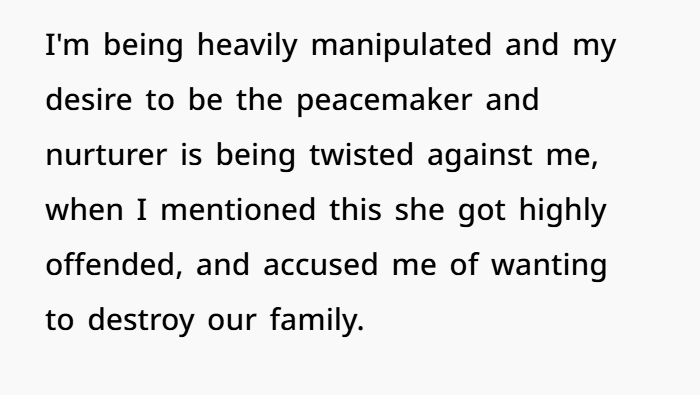
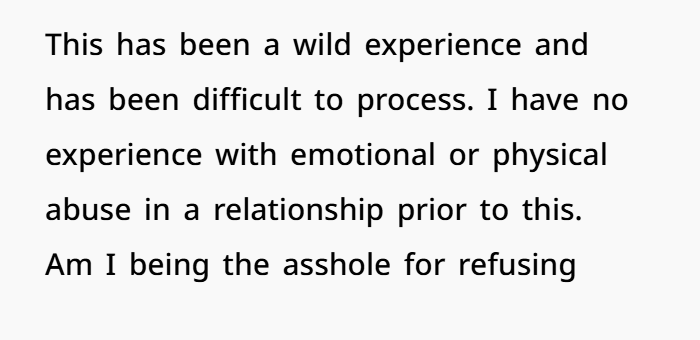
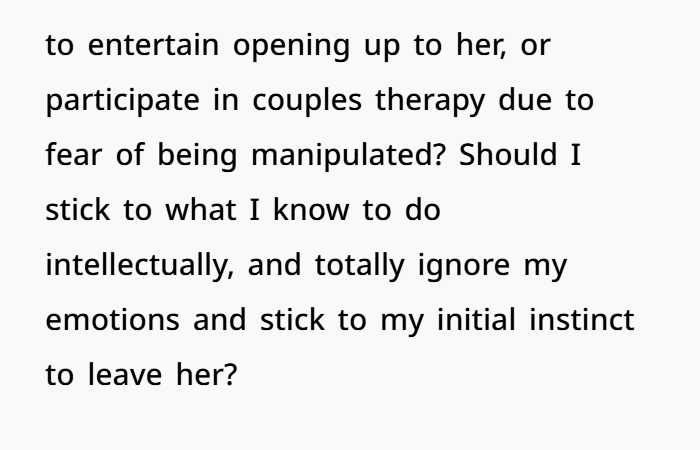
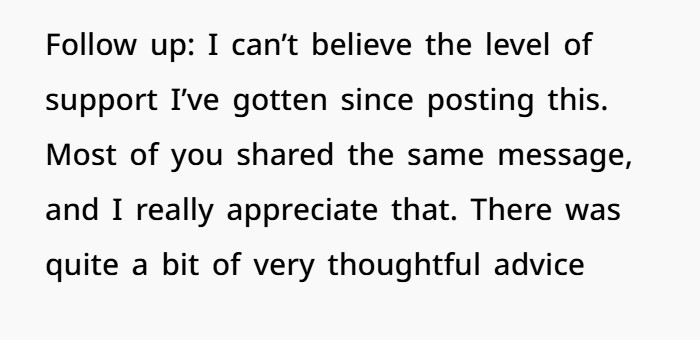
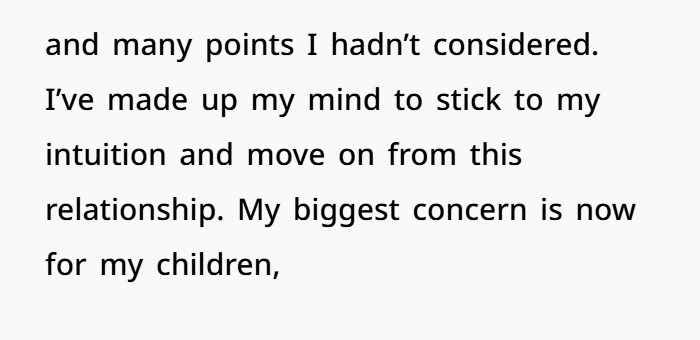
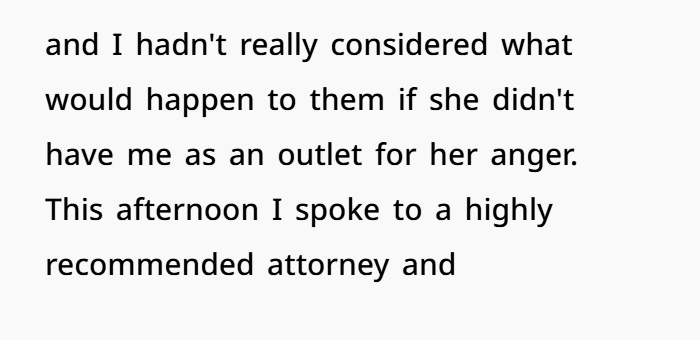
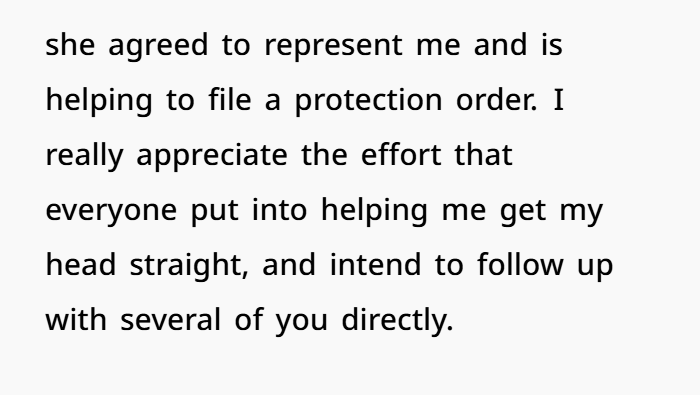
Over 12 million people in the US alone are hurt by their intimate partners every single year
Sadly, violence from a loved one is more common than many people think. According to the National Domestic Violence Hotline, about 24 people every minute in the U.S. are harmed by an intimate partner. That adds up to more than 12 million women and men every year. In fact, over 24% of women and around 14% of men aged 18 and older have suffered severe physical violence from someone they were close to.
But the problem isn’t just physical harm.
The same source reports that nearly half of all women and men in the U.S.—48.4% of women and 48.8% of men—have gone through psychological abuse by a romantic partner. This includes things like yelling, insults, manipulation, and control.
In the OP’s story, he shared that a recent violent outburst from his wife left him with a concussion. Sadly, it wasn’t the first time. It was actually the sixth incident of physical abuse in their 7-year relationship. He also revealed that she had a pattern of emotional violence, using insults, constant belittling, and even threats of divorce to hurt him emotionally.
It’s important to remember: emotional trauma can leave deep scars, even if you can’t see them. Whether it’s physical abuse or psychological aggression, both require serious attention and mental health support.
Male victims are often viewed differently than their female counterparts
While statistics show that women are more often victims of domestic violence, many men also suffer in silence. Sadly, male victims of abuse not only deal with the pain of the violence, but also the social stigma that surrounds speaking out.
Dr. Jenny Mackay, a Principal Lecturer in Forensic Psychology and Forensic Mental Health at Nottingham Trent University, has discussed this issue in depth. She explained that domestic abuse is often seen through a traditional lens—where men are viewed as the aggressors and women as the victims.
Writing for The Conversation, Dr. Mackay noted that this outdated view can blind us to real problems. “When relationships don’t fit this model, we may fail to notice the signs of abuse,” she wrote.
This means male victims, along with women in same-sex relationships, often remain invisible. As a result, they’re less likely to report the abuse or get the mental health support they need. This increases the risk that the domestic violence will continue.
In the case of the OP, several readers were quick to offer support after hearing his story. Many encouraged him to take action and report his wife’s abuse. People in the comments made it clear: leaving an abusive relationship does not make someone weak or wrong—in fact, it’s often the strongest and safest choice.
If you’re facing intimate partner violence, whether you’re male or female, know that help is available. You are not alone, and your safety matters.
One netizen rushed to put the blame on the husband

